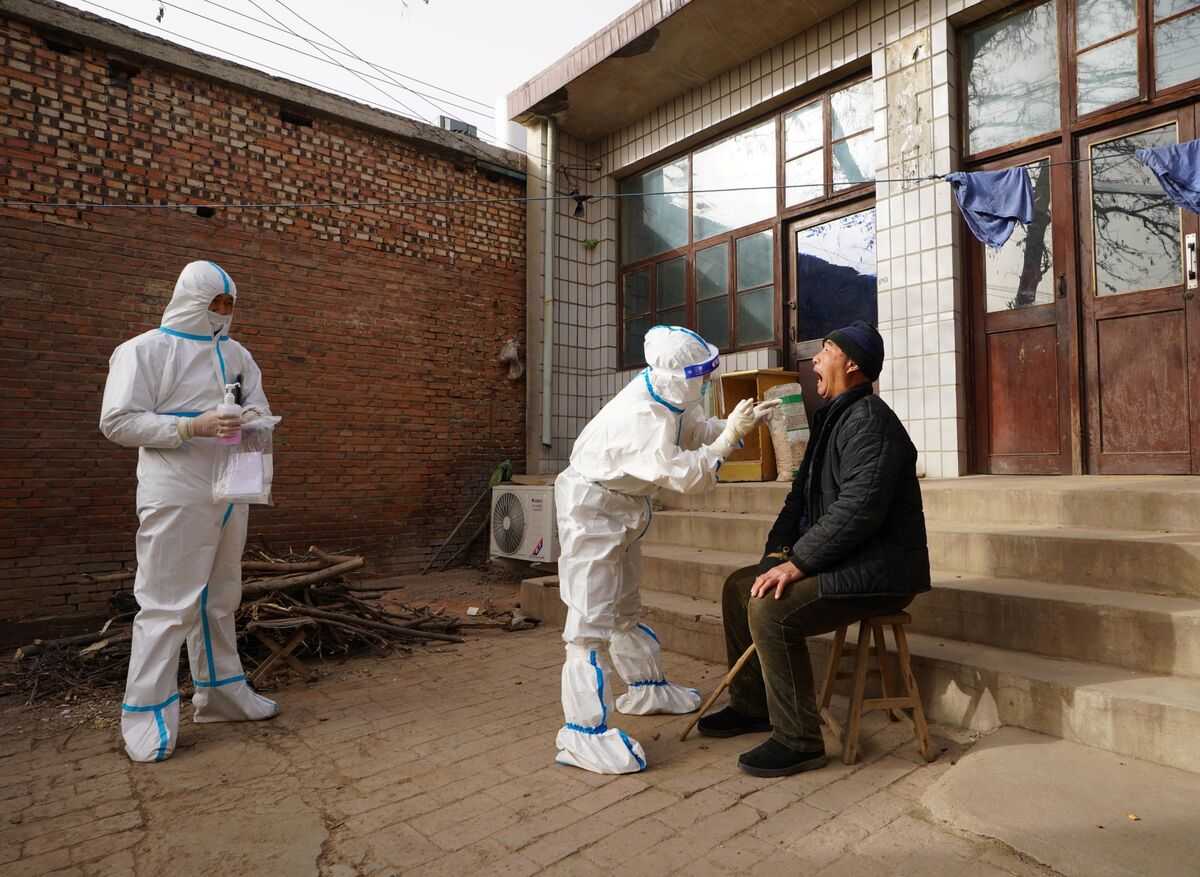
A resident of Shizhuang village undergoes Covid-19 testing in Shijiazhuang, Hebei province, on January 12.
Photographer: Xing Guangli / Xinhua via Getty Images
Photographer: Xing Guangli / Xinhua via Getty Images
China reported its first coronavirus death in nine months, when a new crisis in the country spread to more regions before the Chinese New Year holiday.
The country registered 124 new local infections on Thursday, the highest since March. Among them, 81 were found in Hebei, a province that surrounds Beijing and is at the center of the last cluster. The other 43 cases were detected in Heilongjiang province, in northeastern China.
The fatality was a woman who had an underlying illness, according to the Xinhua news agency, citing the Hebei health commission. China has not had any deaths linked to Covid-19 since April, while the country successfully eliminated clusters after containing the first wave of infections a year ago.
The latest outbreak, however, which has spread to eight provinces, is emerging as one of China’s biggest challenges since the initial increase in the city of Wuhan. The virus was discovered to “last longer, spread more, transmit faster, with a higher percentage of elderly and rural patients,” health officials said in an interview on Wednesday.
Winter conditions have challenged many countries, including neighboring Japan and South Korea, which previously contained the virus well, as low temperatures make people stay indoors in places without ventilation, fueling the spread of the pathogen.
The new outbreak in China, while small compared to those seen in other countries like the United States and the United Kingdom, is causing concern, as it occurs less than a month before the New Year celebrations, in which hundreds of millions of Chinese travel to meet with families. The country is advising its people to avoid unnecessary travel during the holiday.
Three cities are currently closed in Hebei. Flights and trains were suspended and private cars discouraged from leaving the city limits at border control points. The scene recalls Wuhan’s blockade enacted almost a year ago, which was the first broad signal to the world of Covid-19’s gravity.
Hebei started a second round of mass testing for certain cities after testing tens of millions of people and detecting more than 300 positive cases in the first round earlier this month.





